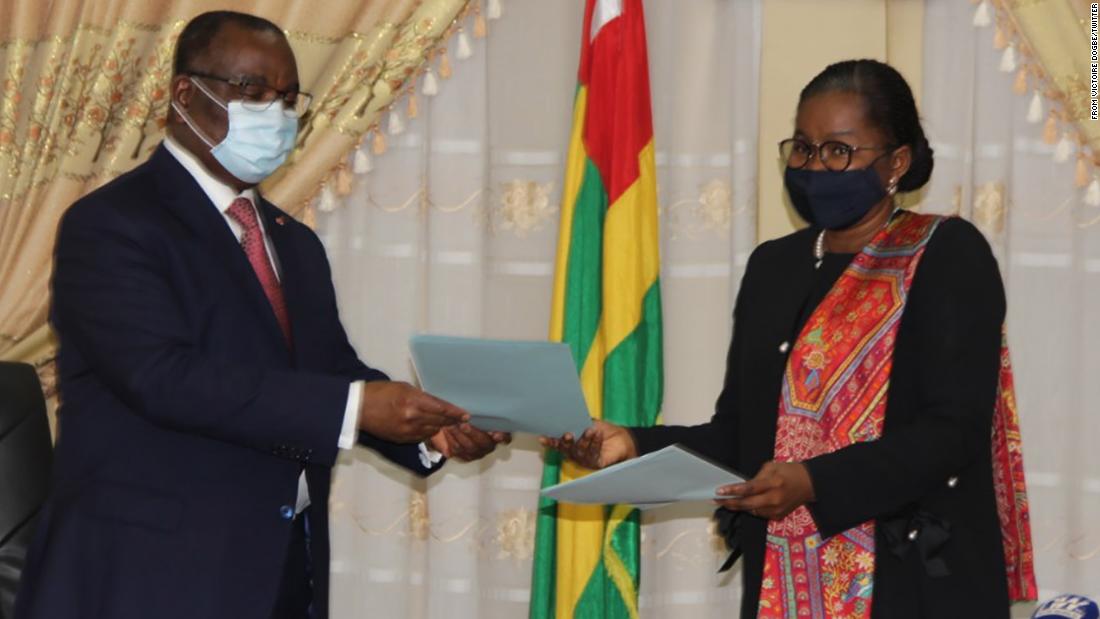President Faure Gnassingbe recently appointed Victoire Sidémého Dzidudu Tomegah-Dogbe as prime minister after her predecessor, Komi Sélom Klassou’s government, which has been in office since 2015 dramatically resigned.
The 60-year-old who is now Togo’s first female Prime Minister is said to be from the inner circle of the President as she has worked closely with him for years. She has served as his chief of Staff since 2009 and had many other ministerial positions since 2008.

Before this appointment, Tomégah Dogbé was the director of the cabinet of the President of the Republic. Her recent ministerial role was that of the Minister of Grassroots Development, Youth Craft and Youth Employment. She was also the Minister of Development at the base, crafts, youth, and employment under Klassou’s government.
Togolese had expected a ministerial reshuffle after Gnassingbe’s re-election in March for his fourth term in office. The changes were however put on hold due to the coronavirus pandemic.
Gnassingbe has been president for 15 years after he took over from his father, Lt. Col. Etienne Gnassingbe Eyadéma, who ceased the office in 1967 in a coup that saw the end to the rule of the former Togolese prime minister.
Prior to the 1967 bloodless coup, Sergeant Etienne Gnassingbe Eyadéma was instrumental in the takedown of Sylvanus Epiphanio Olympio, the first president of Togo. He directed the coup organised by a group of eight Togolese militants led by Emmanuel Bodjolle.
Olympio’s death has been documented as the first death during a military coup in Africa. It was the first coup in the British and French colonies that achieved independence in the 1950s and 1960s.After the coup, the country was in disarray under military rule which gave no room for democracy and civilian inclusion.
So even after Nicolas Grunitzky was appointed in 1963 as the second president and third head of state, Togo never regained its voice. During his 4th year in office Grunitzky was deposed in a bloodless coup by Eyadema. Lt. Col. Eyadema assumed office from 1967 to his death in 2005 for which his sone and current president is continuing his father’s legacy and still in office amid strong opposition and protests. The citizens now wonder if Togo will ever be a truly democratic country.


